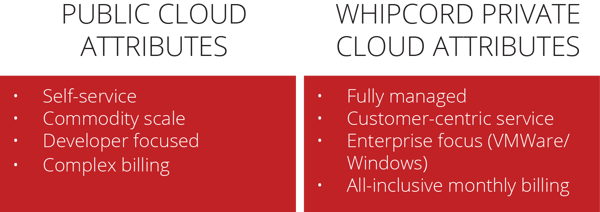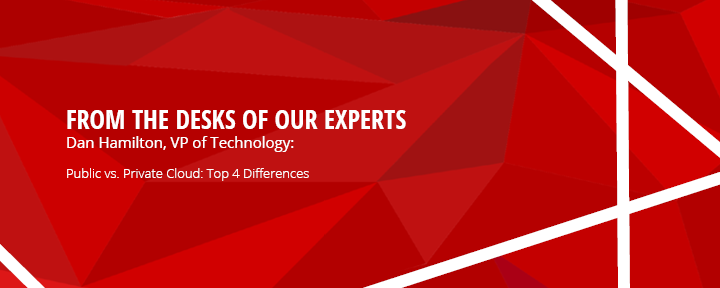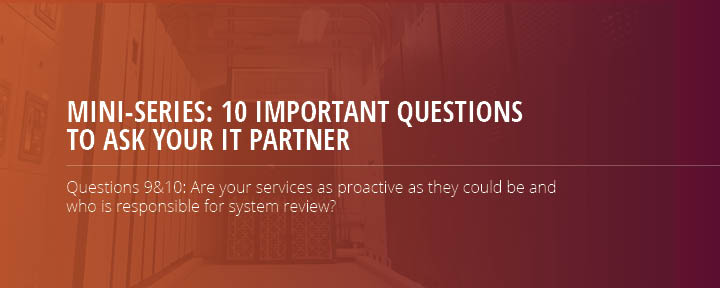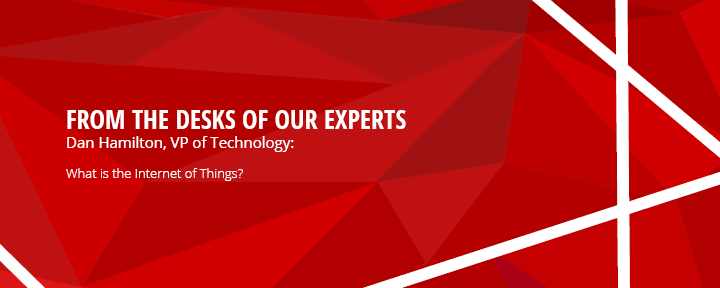Most people who are considering moving to the cloud are familiar with public cloud services such as those offered by Amazon, Microsoft and Google. However, while those services have attributes in common, private cloud services – such as those offered by Whipcord – are different.

Let’s examine these differing attributes a little more closely.
Full Service vs. Self-Serve Model
Public cloud services are purely self-serve and can be quite complex to configure. A devops skillset is required in order to provision and maintain a complex public cloud environment. In contrast, private cloud services are fully managed and don’t require any devops knowledge.
Commodity vs. Customer-Centric Service
Public cloud services are massive in scale and serve massive numbers of customers. As a result, customer service is necessarily multi-tier and generic, whereas private cloud services include flexible, responsive and personalized customer service.
![]() At Whipcord, our customers often know our NOC team members by name, and in turn we know our customers, and understand their businesses and their unique requirements.
At Whipcord, our customers often know our NOC team members by name, and in turn we know our customers, and understand their businesses and their unique requirements.
Developer vs. Enterprise Focus
Public clouds are best used to build large custom web-scale applications. Our private cloud services, on the other hand, are most often used to run traditional enterprise software applications, often on a Microsoft Windows platform.
![]() At Whipcord, our infrastructure resembles the enterprise infrastructure that many of our customers use internally.
At Whipcord, our infrastructure resembles the enterprise infrastructure that many of our customers use internally.
Billing And Cost
Public cloud services often include a dizzying array of complex components in their billing including outgoing bandwidth charges, charges for API calls or object storage operations, charges for storage IOPS, etc. With many different compute instance types available (on-demand, spot, reserved, dedicated, etc) and often with complex formulas to calculate usage for various operations, costs can be very difficult to forecast.
![]() At Whipcord our private cloud services include simple, predictable monthly pricing with no surprises.
At Whipcord our private cloud services include simple, predictable monthly pricing with no surprises.
In addition to these differences, private cloud also allows for fully dedicated, single-tenant environments for customers who have specific compliance requirements. Private cloud is ideal for customers with sensitive data that must stay within Canada in a secure private environment. With private network connectivity options, we can ensure that your data never leaves the country.
As you can see, there are quite a few differences between public and private cloud services and it’s important to take these into consideration when considering your move to the cloud.
-1.png?width=1092&height=792&name=logo%20(1092x792)-1.png)
%20copy(black%20letters).png?width=1092&height=792&name=logo%20(1092x792)%20copy(black%20letters).png)




.png?width=100&height=91&name=white%20logo%20(100x91).png)